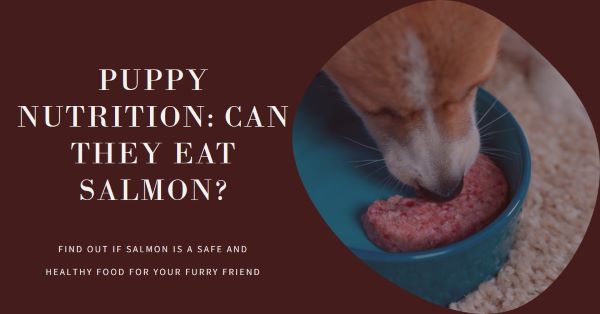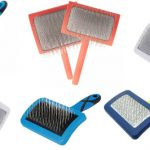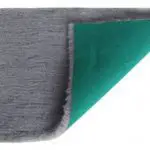Welcome to our friendly guide on whether it is safe for a puppy to eat salmon. As a pet owner, you want to ensure that your furry friend is receiving the best possible nutrition to support their well-being. Salmon is a nutritious fish that provides several health benefits for dogs, but is it safe for puppies?
In this guide, we will explore the risks and benefits of feeding salmon to puppies and provide you with helpful tips on how to incorporate this fish into their diet. We will also discuss other safe fish options for puppies to ensure they are getting a balanced and nutritious diet.

Table of Contents
- Is Salmon Safe for Puppies to Eat?
- The Health Benefits of Salmon for Puppies
- Introducing Salmon to a Puppy's Diet
- Other Fish Options for Puppies
- The Frequently Asked Questions about Feeding Puppies Salmon
- Read my latest posts here:
Is Salmon Safe for Puppies to Eat?
If you're considering adding salmon to your puppy's diet, it's important to know whether it's safe for them to consume. While salmon can be a healthy addition to a dog's diet, there are a few considerations to keep in mind when feeding it to puppies.
Firstly, it's important to note that not all types of fish are safe for puppies to eat. Some fish, such as tuna and swordfish, can contain high levels of mercury, which can be harmful to puppies. However, salmon is generally considered a safe fish to feed to dogs, including puppies, as long as it's cooked properly.
Raw or undercooked salmon can contain parasites and bacteria that may cause illness in puppies, so it's essential to ensure that the salmon is cooked thoroughly before feeding it to your puppy. Furthermore, bones in salmon can pose a choking hazard, so be sure to remove them before serving.
Another consideration is that feeding too much salmon to your puppy can lead to vitamin B12 deficiency, which can cause gastrointestinal and neurological issues. Therefore, it's important to incorporate salmon into your puppy's diet in moderation and ensure they receive a balanced and varied diet overall.
In summary, while salmon can be a nutritious addition to your puppy's diet, it's essential to ensure that it's cooked properly and fed in moderation. If you have any concerns or questions about feeding salmon to your puppy, speak to your veterinarian.
The Health Benefits of Salmon for Puppies
Salmon is a nutritious and highly beneficial addition to a puppy's diet. It is an excellent source of protein, which is essential for building and maintaining muscle mass. Additionally, salmon contains omega-3 fatty acids, which have been shown to promote healthy skin and fur, reduce inflammation, and support cognitive function.
Salmon is also rich in vitamins and minerals, such as vitamin B12 and potassium. Vitamin B12 is important for maintaining a healthy nervous system, and potassium helps regulate heart function and blood pressure. These nutrients are crucial for promoting overall health and well-being in puppies.
Incorporating salmon into a puppy's diet can also help improve their overall immune system, providing them with added protection against diseases and illnesses. The high levels of antioxidants found in salmon help to reduce oxidative stress and inflammation, which can lead to a range of health issues in puppies.
Introducing Salmon to a Puppy's Diet
While salmon can be a healthy addition to your puppy's diet, it's important to introduce new foods gradually. This will give their digestive system time to adjust and reduce the risk of any adverse reactions.
Begin by offering a small amount of cooked salmon as a treat or mixed into their regular food. Start with a quarter of a teaspoon for puppies under six months old or half a teaspoon for older puppies. Watch for any signs of gastrointestinal upset, such as vomiting or diarrhoea.
If your puppy tolerates the salmon well, gradually increase the amount over several days, up to one or two tablespoons per day for adult-sized breeds. Avoid feeding your puppy raw salmon as this can contain harmful bacteria and parasites that can make your puppy sick.
It's also important to note that some puppies may have allergies or sensitivities to salmon. Watch for any signs of an allergic reaction, such as itching, swelling, or breathing difficulties. If you suspect an allergy, consult with your veterinarian.
When preparing salmon for your puppy, remove the skin and bones, which can be a choking hazard. Cook the salmon thoroughly to an internal temperature of 145°F to kill any harmful bacteria. You can bake, broil, or grill the salmon without added oils or seasonings.
If your puppy does not tolerate salmon or has specific dietary requirements, you can try other fish options such as tilapia, trout, or sardines. These fish are also rich in omega-3 fatty acids and protein, and can be prepared in a similar way to salmon. Always consult with your veterinarian before making any changes to your puppy's diet.
Other Fish Options for Puppies
If salmon is not available or your puppy has specific dietary needs, there are other fish options that can provide similar health benefits. Here are some of the best fish choices for puppies:
| Fish | Nutritional Benefits |
|---|---|
| Tuna | High in protein, vitamin B12, and omega-3 fatty acids |
| Sardines | High in protein, vitamin D, and omega-3 fatty acids |
| Trout | High in protein, vitamin B12, and omega-3 fatty acids |
When introducing these fish to your puppy's diet, it is important to consider their size and any potential allergies or sensitivities. It is always best to start with small portions and gradually increase them over time. Additionally, make sure the fish is thoroughly cooked and served without any bones or skin.
Remember to consult with a veterinarian before making any significant changes to your puppy's diet. They can provide guidance on the appropriate types and amounts of fish to include in your puppy's meals.
The Frequently Asked Questions about Feeding Puppies Salmon
Feeding your puppy a healthy and balanced diet is essential for their growth and development. Salmon is a popular choice for many dog owners looking to add variety to their puppy's meals. Here are some common questions and concerns about feeding puppies salmon:
Can puppies eat salmon?
Yes, puppies can eat salmon. It is a healthy source of protein, omega-3 fatty acids, and other essential nutrients that are beneficial to their health. However, it is important to take certain precautions when feeding salmon to puppies.
What are the risks of feeding salmon to puppies?
There are risks associated with feeding salmon to puppies. Raw or undercooked salmon can contain bacteria and parasites that can cause food poisoning and other health issues. Additionally, salmon can contain high levels of mercury and other toxins that can be harmful to your puppy's health if consumed in large quantities.
At what age can puppies start eating salmon?
Puppies can start eating salmon as early as 8 weeks old, but it is important to introduce it gradually and in small amounts at first. As with any new food, it is best to consult with your veterinarian before adding salmon to your puppy's diet.
How should I prepare salmon for my puppy?
When preparing salmon for your puppy, it is important to ensure that it is cooked thoroughly to eliminate the risk of bacterial and parasitic infections. Grilling, baking, or poaching are all safe cooking methods. It is also important to remove any bones and skin before serving it to your puppy.
What are some alternatives to salmon?
If your puppy is allergic to salmon or you are unable to find it, there are other fish options that can provide similar health benefits. Some of the best fish choices for puppies include trout, herring, and sardines. It is important to choose fish that are low in mercury and prepare them in the same way as salmon.
By following these guidelines and consulting with your veterinarian, you can safely incorporate salmon or other fish options into your puppy's diet and provide them with a nutritious and balanced meal.
Read my latest posts here:
- Golden Cavapoo Guide: Care, Training & TipsAs a devoted dog lover, I can't help but feel a sense of joy and fulfillment whenever I see a wagging tail and a pair of eager eyes looking up at me. Dogs have this incredible ability to bring light, love, and companionship into our lives, and one particular breed that has stolen my heart… Read more: Golden Cavapoo Guide: Care, Training & Tips
- Adopt a Rescue Cavapoo Today – Find Your Buddy!Imagine coming home to a wagging tail, a warm snuggle buddy, and unconditional love. That's the joy of having a furry friend by your side. But what if I told you that you could not only experience the purest form of companionship but also change a life in the process? By adopting a rescue cavapoo,… Read more: Adopt a Rescue Cavapoo Today – Find Your Buddy!
- Black Cavapoo Puppies: Your Adorable GuideImagine coming home to a furry ball of excitement, wagging its tail and eagerly waiting for your return. Picture the joy of cuddling up on the sofa with a playful companion who brings laughter and warmth to your life. This is the magic that black Cavapoo puppies can bring to your world. Whether you're a… Read more: Black Cavapoo Puppies: Your Adorable Guide
- Straight Hair Cavapoo Traits and Care GuideHave you ever dreamed of having a furry companion who is not only adorable but also hypoallergenic? Someone who will bring joy and love into your life without triggering pesky allergies or leaving a trail of fur behind? Well, let me introduce you to the straight hair Cavapoo, the perfect blend of cuteness and allergy-friendly… Read more: Straight Hair Cavapoo Traits and Care Guide
- Managing Dog Peeing from Anxiety - Quick TipsDoes your dog experience anxiety that leads to peeing accidents? If so, you're not alone. Many dog owners struggle with this issue, wondering how they can help their furry friends overcome their anxiety and prevent these unwanted accidents. But fear not, because in this article, we will provide you with quick and effective tips to… Read more: Managing Dog Peeing from Anxiety - Quick Tips
- Anti-Pull Dog Leash: Enjoy Tangle-Free WalksAre you tired of your dog constantly pulling and tugging during walks, making the experience more stressful than enjoyable? Do you wish there was a solution to make your walks together more peaceful and hassle-free? Say goodbye to those tangled leashes and strained arms because we have the answer! Introducing the revolutionary anti-pull dog leash,… Read more: Anti-Pull Dog Leash: Enjoy Tangle-Free Walks
- Dog Ate Aspirin? Immediate Steps to Take NowAs dog owners, we prioritize the well-being of our furry companions. But what happens when your beloved pet accidentally ingests aspirin? Do you know what immediate steps to take? Are you aware of the potential harm it can cause? Let's dive into this critical topic and learn how to safeguard your dog's health. Accidental consumption… Read more: Dog Ate Aspirin? Immediate Steps to Take Now
- Understanding Dog Aggressive Behavior with PeersDo you ever wonder why some dogs exhibit aggressive behavior towards their fellow canines? Is aggression towards other dogs a common problem or just a result of poor training? In this section, we will delve into the complexities of dog aggressive behavior towards other dogs and explore effective training methods to address this issue. By… Read more: Understanding Dog Aggressive Behavior with Peers
- Old English Bulldog vs. English Bulldog DifferencesWhen it comes to bulldogs, most people are familiar with the popular English Bulldog. However, there is another breed that often gets overlooked - the Old English Bulldog. These two breeds may share a similar name, but they have distinct differences that set them apart. So, what exactly are the key differences between the Old… Read more: Old English Bulldog vs. English Bulldog Differences
- Bulldog Farts: Causes and How to Reduce ThemDo you own an adorable bulldog but find yourself constantly battling their smelly gas? Are you tired of searching for effective remedies to combat the flatulence in your furry friend? Look no further! In this article, we will dive into the causes of bulldog farts and provide you with essential tips to reduce them and… Read more: Bulldog Farts: Causes and How to Reduce Them
- Bloodhound and Lab Mix Puppies: Adorable CompanionsAre you looking for an adorable companion that combines the best traits of two popular breeds? Meet the Bloodhound and Lab mix puppies, the lovable designer dogs that are capturing hearts everywhere. These unique crossbreeds are not only incredibly cute but also offer a variety of benefits that make them stand out from purebred dogs.… Read more: Bloodhound and Lab Mix Puppies: Adorable Companions
- AKC Bulldog Colors Guide - Identify Your PupHave you ever wondered why bulldogs come in such a diverse range of colors? From brindle and fawn to white and black, the coat colors of bulldogs are a fascinating subject. But how well do you know the official American Kennel Club (AKC) bulldog colors and standards? Are you confident in identifying the color genetics… Read more: AKC Bulldog Colors Guide - Identify Your Pup
- How many nipples does a dog haveHave you ever wondered how many nipples a dog has and what their purpose is? We will explore the anatomy of a dog's nipples, including how many nipples female and male dogs have. We will also discuss common nipple problems in dogs and how to tell if a dog's nipples are healthy. If you're curious… Read more: How many nipples does a dog have
- Best brush for a CavapooWhen you first bring your adorable little Cavapoo home, you’ll still be gathering all the things you need to take the best care of him or her. This post has been updated on 27th Feb 2024. One of the best brushes I’ve found is the Big G Slicker Brush by Chris Christensen. The longer pins… Read more: Best brush for a Cavapoo
- Meet the Unique Cavapoo with Blue Eyes - A Rare BeautyAs a professional journalist, I've had the pleasure of writing about various dog breeds, but the Cavapoo with blue eyes stands out as a true rarity. This captivating canine boasts striking blue eyes that add to its already unique charm. The Cavapoo breed with blue eyes is a sight to behold, with a playful personality… Read more: Meet the Unique Cavapoo with Blue Eyes - A Rare Beauty
- Comparing Breeds: Poochon vs Cavapoo - A Detailed InsightWhen it comes to selecting a new pet, many people find themselves deciding between the Poochon and Cavapoo breeds. While both are popular for their hypoallergenic qualities and suitability as family pets, there are distinct differences between the two that potential owners should consider. In this article, we will provide a detailed comparison of the… Read more: Comparing Breeds: Poochon vs Cavapoo - A Detailed Insight
- Adorable Newborn Cavapoo Puppies: A Must-Have CompanionGreetings! As a professional copywriting journalist, I am delighted to explore with you the irresistible charm of newborn Cavapoo puppies in this article. If you're a dog lover looking for a furry friend, you'll want to know how Cavapoo puppies make the perfect companions. Let's discover the joys of welcoming these adorable little bundles of… Read more: Adorable Newborn Cavapoo Puppies: A Must-Have Companion
- Meet the Adorable Ginger Cavapoo: Your Perfect CompanionIf you are in search of the ultimate companion that is both affectionate and adaptive, look no further than the ginger Cavapoo. These charming little dogs are a crossbreed between a Cavalier King Charles Spaniel and a Poodle, resulting in a lovable combination of traits that make them the perfect addition to any family. One… Read more: Meet the Adorable Ginger Cavapoo: Your Perfect Companion
- Your Guide to Adorable Ruby Cavapoo PuppiesWelcome to my comprehensive guide on ruby Cavapoo puppies! As a professional copywriting journalist, I have extensive experience researching and writing about different dog breeds. In this guide, we will explore everything you need to know about the adorable ruby Cavapoo, including their breed information, care tips, and why they make a perfect addition to… Read more: Your Guide to Adorable Ruby Cavapoo Puppies
- Overcoming Challenges: Why I Hate My Cavapoo & How To Love ItAs a Cavapoo owner, I know firsthand the challenges and frustrations that come with having this adorable breed as a furry companion. Despite their cute appearance and affectionate nature, Cavapoos can sometimes exhibit problem behaviors that lead to feelings of dislike and even resentment towards them. If you've ever found yourself saying "I hate my… Read more: Overcoming Challenges: Why I Hate My Cavapoo & How To Love It
- Unbiased Jonas Cavapoo Puppies Reviews: Happy Pet Parents Speak OutWhy Cavapoo Puppies are Highly Sought After As a professional copywriting journalist, I have had the opportunity to interact with many dog breeds. However, Cavapoos stand out as one of the most sought after breeds. But why? Cavapoo puppies are a perfect blend of the adorable, fun-loving, and affectionate attributes of a Cavalier King Charles… Read more: Unbiased Jonas Cavapoo Puppies Reviews: Happy Pet Parents Speak Out
- Explore Adorable River's Edge Cavapoos: Your Perfect Family PetAre you looking for a furry companion to bring joy and love into your family? If you're based in the US then you could take a look at River's Edge Cavapoos. Cavapoos are adorable puppies which are the perfect mix of Cavalier King Charles Spaniel and Poodle, resulting in a loving and gentle temperament that… Read more: Explore Adorable River's Edge Cavapoos: Your Perfect Family Pet
- Unveiling the Timeline: How Long for Cavapoo Hair to Grow BackAs a professional copywriting journalist, I often come across concerned Cavapoo owners wondering how long it will take for their pet's hair to regrow. The answer is not straightforward since several factors come into play in determining the time it takes for Cavapoo hair growth. In this section, I will explore the timeline for Cavapoo… Read more: Unveiling the Timeline: How Long for Cavapoo Hair to Grow Back
- Enjoy Comfort & Warmth with Equafleece Cavapoo Sweaters!As the temperature drops, it's essential to keep our furry friends warm and comfortable. The Equafleece Cavapoo Sweaters are a perfect solution to keep your Cavapoo cozy during the winter months. Equafleece is a renowned brand that offers high-quality dog fleece, including customized clothing for specific breeds, shapes and sizes, including our beloved Cavapoos. Equafleece… Read more: Enjoy Comfort & Warmth with Equafleece Cavapoo Sweaters!
- Can Puppies Look Like Their Grandparents? Unravelling the Mystery!Have you ever noticed a striking resemblance between your new puppy and their grandparents? Perhaps they share the same colouring or have similar facial features? It's not uncommon for puppies to resemble their grandparents, and in this article, I will explore the fascinating topic of whether this is possible and why it happens. We will… Read more: Can Puppies Look Like Their Grandparents? Unravelling the Mystery!
- Does Dewormer Make Puppies Pee More? Find Out Now!As a puppy owner, you may have concerns about the effects of deworming medication on your furry friend. One common worry is whether dewormer makes puppies pee more frequently. It's understandable to have questions about such changes in your puppy's urinary habits and how they may affect their well-being. In this article, we will provide… Read more: Does Dewormer Make Puppies Pee More? Find Out Now!
- When Do Puppies Require Less Supervision? A Detailed Guide.As a new puppy owner, it's important to keep a close eye on your furry friend. Puppies are curious and energetic, which means they require constant supervision to stay safe. However, as your puppy grows and develops, they will start to become more independent and require less supervision. But when exactly do puppies require less… Read more: When Do Puppies Require Less Supervision? A Detailed Guide.
- Can Dogs Eat Croissants? Your Query Answered Simply.As a dog lover, I am always concerned about my furry friend's health and well-being. It is essential to be aware of what we offer our dogs, especially when it comes to food. One of the most common questions pet owners ask is, "Can dogs eat croissants?" Croissants are a popular pastry that many people… Read more: Can Dogs Eat Croissants? Your Query Answered Simply.
- Delicious Pastrami Dogs: A British Twist on a Classic FavouriteAs a professional copywriting journalist, I have seen many trends come and go in the food industry. However, one dish that has captured my attention lately is pastrami dogs. These gourmet hot dogs are a British twist on a classic American favourite, and they are taking the culinary world by storm. Picture a juicy hot… Read more: Delicious Pastrami Dogs: A British Twist on a Classic Favourite
- Discover the Lovable Beethoven Dog Breed - All You Need to KnowAre you looking for a loyal and affectionate companion? Look no further than the Beethoven dog breed. These gentle giants are known for their charming personality and playful nature, making them the perfect addition to any family. With their distinctive features and friendly temperament, the Beethoven dog breed has become a popular choice among dog… Read more: Discover the Lovable Beethoven Dog Breed - All You Need to Know
- Understanding Behaviour: Why Do Female Dogs Put Their Bum on You?As a dog owner, you may have experienced the curious behaviour of a female dog putting her bum on you. While it may seem odd or even embarrassing, it's important to understand that this behaviour is a form of canine communication and can reveal a lot about your furry friend's instincts and personality. In this… Read more: Understanding Behaviour: Why Do Female Dogs Put Their Bum on You?
- Answering: How Many Dentastix Can a Dog Have a Day?As a dog owner, I'm sure you want to do everything possible to keep your furry friend healthy and happy. This includes taking good care of their teeth, which is essential for their overall health and well-being. One popular dental treat for dogs is Dentastix, but you may be wondering how many Dentastix can a… Read more: Answering: How Many Dentastix Can a Dog Have a Day?
- An Unexpected Bond: When My Dog Licked My EyeAs a dog owner, I thought I'd seen it all. But one day, my furry friend surprised me in a way I never could have imagined – by licking my eye. At first, I was taken aback and worried about the potential health risks. But as I looked into my dog's adoring eyes, I couldn't… Read more: An Unexpected Bond: When My Dog Licked My Eye
- Is Blue Cheese Safe? - A Guide to Blue Cheese for DogsAs a dog owner, it's natural to want to share your food with your furry friend. However, it's important to be cautious about what you feed them, as not all human foods are safe for dogs. One food that often raises questions is blue cheese. While it can be a delicious addition to our meals,… Read more: Is Blue Cheese Safe? - A Guide to Blue Cheese for Dogs
- What is Raw Feeding Dogs? Discover the Benefits & Basics.Hello, fellow dog lovers! I am thrilled to share with you the fascinating world of raw feeding for dogs. You may have heard of it before, but what exactly is raw feeding? Raw feeding refers to the concept of feeding dogs a diet of raw and unprocessed foods that mimic what their ancestors would have… Read more: What is Raw Feeding Dogs? Discover the Benefits & Basics.
- Uncover the Charms of Brown Fluffy Dog Breeds Today!Welcome to the world of brown fluffy dog breeds! These adorable and affectionate canines have captured the hearts of people around the globe with their cute, fluffy appearance and friendly personalities. In this article, we will explore the different types of brown fluffy dogs, provide tips on their care, and answer frequently asked questions about… Read more: Uncover the Charms of Brown Fluffy Dog Breeds Today!
- Best Vacuum Cleaner for Dog Hair UKWhen I was young I spent a lot of time at my grandparents house and they had four Bernese Mountain Dogs. Between them they kept my nan busy with daily brushing and she also used a pretty heavy duty vacuum cleaner! Now my dog "Bean" isn't nearly as bad as the double coated Bernese but… Read more: Best Vacuum Cleaner for Dog Hair UK
- Is Raw Feeding Dogs More Expensive? Let's Compare Costs.Hello, fellow dog lovers! As a dog owner, I am always on the lookout for the best ways to keep our furry friends happy and healthy. One question that often comes up in discussions about pet nutrition is whether raw feeding dogs is more expensive than traditional diets? Yes, raw feeding can be more expensive… Read more: Is Raw Feeding Dogs More Expensive? Let's Compare Costs.
- Can Dogs Eat Watercress? Discover the Answer & Benefits.As a dog owner, I am always looking for ways to provide my furry friend with a balanced and nutritious diet. One food item that has caught my attention recently is watercress. But can dogs eat watercress? Is it safe for them? In this section, I will explore the safety considerations associated with feeding watercress… Read more: Can Dogs Eat Watercress? Discover the Answer & Benefits.
- My Dog Ate 10mg of Loratadine: What to Do & Prevention TipsAs a dog owner, it's essential to be aware of potential dangers that your pet may face. One such danger is the ingestion of medication meant for humans. One day, I discovered that my dog had eaten 10mg of loratadine, an antihistamine commonly used to treat allergies in humans. I panicked and was unsure of… Read more: My Dog Ate 10mg of Loratadine: What to Do & Prevention Tips
- Dog Ate a Wasp: Remedies & Vet TipsIt happens to the best of us - our curious canine companion decides to snack on something they shouldn't. If your dog has eaten a wasp, it's important to take immediate action to alleviate any discomfort or potential health risks they may experience. In this guide, we'll explore the symptoms of a dog eating a… Read more: Dog Ate a Wasp: Remedies & Vet Tips
- Why Does My Dog Pant in the Car? Understanding Your Pet's BehaviorHave you ever noticed your dog panting heavily during car rides? Don't worry, it's a common behaviour for dogs. However, excessive panting can indicate discomfort or anxiety, which can make car rides stressful for both you and your furry friend. It's essential to understand your pet to ensure their well-being during car rides. Dogs pant… Read more: Why Does My Dog Pant in the Car? Understanding Your Pet's Behavior
- Can Puppy Eat Salmon? – A Friendly Guide to Feeding PuppiesWelcome to our friendly guide on whether it is safe for a puppy to eat salmon. As a pet owner, you want to ensure that your furry friend is receiving the best possible nutrition to support their well-being. Salmon is a nutritious fish that provides several health benefits for dogs, but is it safe for… Read more: Can Puppy Eat Salmon? – A Friendly Guide to Feeding Puppies
- Vet Bed UKThanks for checking out my review of the PnH Veterinary Bedding. I recently purchased the Vet Bed Rectangle measuring 76cm x 50cm in the colour Grey. It came ready to use, with the selvage edge already removed. Let me share my thoughts on this product with you! PnH Veterinary Bedding: Pros and Cons What We… Read more: Vet Bed UK
- Can Vet Bed Be Tumble Dried?As a pet owner, I know how important it is to provide our furry friends with comfortable bedding. Vet bed is a popular choice for many pet owners due to its softness and durability. However, one concern that often arises is whether or not vet bed can be tumble dried. Yes, Vet Bed can be… Read more: Can Vet Bed Be Tumble Dried?
- Can Dogs Eat Blue Cheese? Safety Tips & Risks ExplainedAs a dog owner, it is important to be mindful of the foods that you feed your furry friend. While some human foods are safe for dogs to consume, others can be potentially harmful. Blue cheese is one such food that has been a topic of much debate among pet owners. In this article, we… Read more: Can Dogs Eat Blue Cheese? Safety Tips & Risks Explained
- Can Dogs Eat Rocket LeavesCan dogs eat rocket leaves? This is a common question among dog owners who want to ensure the safety of their furry friends. Rocket leaves, also known as arugula, are a leafy green that is commonly used in salads and other dishes. In this article, we will explore whether rocket leaves are safe for dogs… Read more: Can Dogs Eat Rocket Leaves
- Understanding Why Does My Dog Feel Hot to The Touch - Ultimate GuideHave you ever touched your dog and noticed that they feel warmer than usual? It's natural to be concerned when you feel your dog's body temperature is higher than normal. In this section, we'll explore why your dog may feel hot to the touch. Firstly, it's essential to understand your dog's normal body temperature. A… Read more: Understanding Why Does My Dog Feel Hot to The Touch - Ultimate Guide
- Understanding the Lifespan: How Long Will a Cavapoo Live?Welcome to our informative guide on the lifespan of a Cavapoo. As a loving pet owner, you want to ensure that your furry friend has the best possible quality of life. Knowing how long your Cavapoo is likely to live is an essential aspect of planning for their long-term care. In this section, we will… Read more: Understanding the Lifespan: How Long Will a Cavapoo Live?
- Why Does My Dog Burp a Lot? Understanding Your Pet's Digestion!If you're a pet lover, you know that dogs can exhibit some pretty strange behaviours at times. One of these behaviours is excessive burping. While the occasional burp is normal, some dogs tend to burp more frequently than others, causing pet owners to wonder if something is wrong. In this section, we will explore the… Read more: Why Does My Dog Burp a Lot? Understanding Your Pet's Digestion!
- Essential Guide: What Should I Know Before Buying a Cavapoo?Are you considering bringing a Cavapoo into your home? These adorable pups are a popular mix of Cavalier King Charles Spaniel and Poodle, but before making a purchase, there are some essential things you should know. First and foremost, it's important to understand the care requirements, including grooming routines, nutrition needs, and exercise requirements. Additionally,… Read more: Essential Guide: What Should I Know Before Buying a Cavapoo?
- Your Guide to the Most Popular Grey Dog Breeds Out There!Grey dogs breeds are a beloved choice for many dog owners. Their unique coat colours and charming personalities make them stand out from the crowd. Whether you're after a small companion or a large, loyal friend, there are plenty of grey dog breeds to choose from. In this article, we'll take a closer look at… Read more: Your Guide to the Most Popular Grey Dog Breeds Out There!
- Is a Male or Female Cavapoo Better? Discover the Answer!Are you considering adding a Cavapoo to your family but unsure which gender to choose? Don't worry; you're not alone. Many potential pet owners find themselves asking the question, "Is a male or female Cavapoo better?" Fortunately, we're here to help you discover the answer. Before we dive into gender-specific characteristics, let's first understand the… Read more: Is a Male or Female Cavapoo Better? Discover the Answer!
- Is My Dog Depressed? Understanding Canine Blues & SolutionsAs a dog owner, you always want to make sure your furry best friend is happy and healthy. But what happens if you start to notice changes in their behaviour? Are they sleeping more than usual? Eating less? Not as playful as they used to be? You might be wondering, "is my dog depressed?" It's… Read more: Is My Dog Depressed? Understanding Canine Blues & Solutions
- Can Cavapoo be Left Alone? Understanding Your Pet's Needs.As a Cavapoo owner, you may wonder whether your furry friend can handle alone time. Understanding your pet's needs is crucial to ensure their well-being and happiness. Cavapoos are known for their affectionate and loyal nature, which means they thrive on human companionship. However, they're also adaptable and can adjust to periods of alone time… Read more: Can Cavapoo be Left Alone? Understanding Your Pet's Needs.
- Understanding Why is My Dog Licking Everything: A GuideAs a dog owner, you may have noticed that your furry friend has a tendency to lick everything in sight. From their paws to the furniture, excessive dog licking can be a cause for concern. In this guide, we will explore the various reasons behind why dogs engage in this behaviour and provide useful tips… Read more: Understanding Why is My Dog Licking Everything: A Guide
- Does a Cavapoo Smell? Decoding Your Pup's Unique ScentAs a Cavapoo owner, you know that these adorable pups are a joy to be around. However, you may have noticed a unique scent emanating from your furry friend. But does a Cavapoo smell? The answer is yes, just like any other dog breed, Cavapoos have an odour. But don't worry, there are ways to… Read more: Does a Cavapoo Smell? Decoding Your Pup's Unique Scent
- Best Dog Tug ToyFinding the right dog tug toy can be tricky. Durability, safety, and fun are all key factors to consider. From ropes to rubber toys, there are plenty of options. Tug toys can provide hours of entertainment and exercise. Plus, they can help strengthen the bond between you and your pet. Different shapes and sizes cater… Read more: Best Dog Tug Toy
- Carrots for Puppies Teething: A Natural Solution for Pain ReliefWhen your little furry friend is going through the teething process, it can be a challenging time for both of you. Thankfully, there are natural remedies that can help relieve their pain while promoting overall health. One such remedy is carrots for puppies teething. Carrots are an excellent source of vitamins and minerals that can… Read more: Carrots for Puppies Teething: A Natural Solution for Pain Relief
- Addressing Cavapoos Problems: What You Should KnowWelcome to our guide on Cavapoos! These adorable furry companions are known for their friendly and loving nature, but just like any other breed, they may encounter certain problems. In this section, we will discuss the common problems faced by Cavapoos, including their health issues and other challenges. It is important for prospective and current… Read more: Addressing Cavapoos Problems: What You Should Know
- Can My Dog Smell Other Dogs on Me? Unleashing Furry Facts!Welcome to the world of canine scent detection. If you're the proud owner of a furry friend, you may be wondering whether your dog can smell other dogs on you. Well, the answer is yes! Dogs have a remarkable sense of smell that allows them to detect scents that are beyond our human capabilities. Research… Read more: Can My Dog Smell Other Dogs on Me? Unleashing Furry Facts!
- Decoding the Price: How Much Should a Cavapoo Cost?Are you considering adding a Cavapoo to your family but unsure about the cost? We understand that the pricing of Cavapoos can vary greatly, making it challenging to determine what you should be paying. In this article, we'll explore the various factors that affect the cost of a Cavapoo, including health checks, pedigree, and breeder… Read more: Decoding the Price: How Much Should a Cavapoo Cost?
- Discover the Best Dog Brush for Corgis - Keep Their Coat Shiny!As a corgi owner, you know how important it is to keep your furry friend looking and feeling their best. One of the most crucial aspects of corgi grooming is brushing their coat regularly. Not only does this help to keep their fur free from tangles and mats, but it also promotes healthier skin and… Read more: Discover the Best Dog Brush for Corgis - Keep Their Coat Shiny!
- Cavapoo vs Cockapoo: What's Better? Explore Your Pup Choice!Choosing a furry friend to join your family can be a challenging decision, especially when it comes to the popular Cavapoo and Cockapoo breeds. Both are a combination of two adorable purebreds, making them highly sought after for their charming looks and loving personalities. If you're wondering "what's better Cavapoo or cockapoo," you're not alone.… Read more: Cavapoo vs Cockapoo: What's Better? Explore Your Pup Choice!
- Uncovering the Truth: Are Cavapoos Good Temperament Dogs?Welcome to our guide on Cavapoo temperament! If you're considering getting a Cavapoo, or just curious about their temperament, you've come to the right place. In this article, we'll explore the personality and behaviour of this adorable breed. Many people wonder, "Are Cavapoos good temperament dogs?" The answer is a resounding yes! Cavapoos are known… Read more: Uncovering the Truth: Are Cavapoos Good Temperament Dogs?
- Do Cavapoos Bark a Lot? Your Guide to Understanding Cavapoo BehaviorAre you considering getting a Cavapoo or already own one? One of the most common questions asked about these adorable pups is: do Cavapoos bark a lot? Cavapoos can be moderately vocal, their tendency to bark depends on their individual personality. Early training will certainly help manage excessive barking. As with any dog breed, Cavapoos… Read more: Do Cavapoos Bark a Lot? Your Guide to Understanding Cavapoo Behavior
- Unveiling the Truth: Do Cavapoos Make Good Pets?Yes, Cavapoos make good pets. They're known for their friendly and sociable nature. They are a crossbreed of Cavalier King Charles Spaniel and Poodle, combining the affectionate nature of the former with the intelligence of the latter. Obviously my opinion may well be biased as I absolutely love my Cavapoo, he's called Bean. That said… Read more: Unveiling the Truth: Do Cavapoos Make Good Pets?
- HOTTERdog by Equafleece Fleece Dog Coat ReviewWhat is the HOTterdog by Equafleece® Fleece Dog Coat? It's the perfect coat for your stylish dog! The HOTterdog by Equafleece® Fleece Dog Coat is made from 100% recycled materials and is lined with cozy fleece to keep your pup warm all winter long. This animal attire is also reversible, so you can choose between… Read more: HOTTERdog by Equafleece Fleece Dog Coat Review
- When Can Puppies Travel by Car?Puppies can travel by car at any age as long as you’re sensible about it. The younger they are the more considerate you should be. In this article I try to cover all the possible options and things you should consider. Can newborn puppies travel in a car? Whoa there, let's not jump the gun!… Read more: When Can Puppies Travel by Car?
- Merle CavapooDiscover the enchanting Merle Cavapoo, a delightful crossbreed with a splash of colour. Unleash joy and beauty with this charming companion. Find out more now! Key Takeaways: Merle Cavapoo Introduction The Merle Cavapoo is a highly sought-after breed that combines the intelligence of the Poodle with the affectionate nature of the Cavalier King Charles Spaniel.… Read more: Merle Cavapoo
- Equafleece ReviewDiscover how Equafleece can keep your dog cosy and fashionable all year-round. Read my Equafleece review for insights on this all weather-resistant dog fleece. I’ve bought more than one product from Equafleece for my Cavapoo “Bean” so this review is based on my personal experience. Below I give my overall “Best Buy” a cheaper alternative… Read more: Equafleece Review
- Cavapoo UnderbiteExplore the causes and solutions for underbites in Cavapoos. Learn how to care for your pet's dental health and ensure their long-term wellbeing. The posh word for "Underbite" is "Malocclusion" but I always try to use simple plain language in my blog posts whenever possible. If you read through this I'm confident you'll have a… Read more: Cavapoo Underbite
- Can a Bichon Frise have Straight Hair?Yes, it is possible for some Bichon Frises to have straight hair, but it is not the norm for the breed. Most Bichon Frises have curly or wavy hair. Introduction: Exploring the possibility of Bichon Frises having straight hair Bichon Frises have fluffy curls, but it's possible for some to have straight hair too. This… Read more: Can a Bichon Frise have Straight Hair?
- Can I take my Dog to France on the Ferry?Yes, you can take your dog to France by ferry. We have details here of specific requirements, such as vaccinations and documentation for traveling with pets. Introduction To gain an understanding of the topic "Can I take my dog to France on the ferry from UK?", let's start with a brief overview. We'll explore the… Read more: Can I take my Dog to France on the Ferry?
- How long do puppies need milk?Puppies typically need milk as their primary source of nutrition until they are around 4 to 6 weeks old. After that, they can gradually transition to solid food, but it's essential to consult a vet for guidance on the appropriate time to introduce solids to ensure the puppies' needs are met. Welcoming a litter of… Read more: How long do puppies need milk?
- Can ultrasound be wrong about puppies?Yes, ultrasound can sometimes be wrong about the number of puppies expected. Factors like foetal position, maternal tissue interference, or early gestation can affect the precision of the ultrasound results. Check with a vet for the most accurate assessment. Bringing new puppies into the world is an exciting time for dog owners and breeders. One… Read more: Can ultrasound be wrong about puppies?
- Why does a mother dog lay on her puppies?A mother dog lays on her puppies to provide warmth, comfort, and security. This behaviour is promoted by the release of oxytocin and prolactin, which awaken a mother’s protective instincts. Laying on her puppies helps regulate their body temperature and promotes bonding. When a dog mum gives birth to puppies, it’s a super exciting time,… Read more: Why does a mother dog lay on her puppies?
- Do puppies have rabies when they are born?No, puppies are not born with rabies. Rabies is a viral disease transmitted through the bite of an infected animal or, very rarely, through a mother’s milk if the mother carries the disease. It's crucial to vaccinate puppies to protect them from this potentially deadly disease. In the rest of this piece, we’ll explore if… Read more: Do puppies have rabies when they are born?
- Do puppies stop moving before birth? Yes, absolutely puppies often do stop moving before birth. Later in pregnancy, puppies are likely to move more to get into the proper position for delivery. After that, puppies usually settle and stop moving. Preparing for the birth of new puppies can be as challenging as it is exciting. You know there’ll be cuteness in… Read more: Do puppies stop moving before birth?
- What do breeders do with unsold puppies?When ethical breeders have unsold puppies, they may explore various options such as advertising, reducing prices, or giving them more training. They may also seek reputable homes through adoption, or work with rescue organisations to ensure the puppies find suitable, loving homes. Breeding can be tremendously rewarding. With litters of anywhere from a single pup… Read more: What do breeders do with unsold puppies?
- Do puppies bark more when teething?Yes, puppies do bark more when teething. The discomfort and pain caused by teething can lead to increased restlessness and irritability, making them bark more often. You can use teething toys and soothing remedies to help relieve their discomfort and curb their barking. Puppies are known for their adorable antics and playful nature. You may… Read more: Do puppies bark more when teething?
- When do puppies become affectionate? Puppies start showing affection as early as a few weeks old. However, the timing depends on their personalities, socialisation, and bond with their owners. Most puppies develop increasing affection as they grow and form stronger emotional connections with their owners. Just as with us humans, puppies go through emotional development as they grow. In their… Read more: When do puppies become affectionate?
- Is birch tree milk good for puppies? The benefits of birch tree milk for puppies are not well known, though the answer is yes, in moderation. If in doubt, it’s best to provide them balanced commercial puppy food formulated to meet their specific nutritional needs to keep your pup healthy. Puppies are bundles of joy. I can testify to that fact because… Read more: Is birch tree milk good for puppies?
- Can you use puppy pads for babies?While not toxic to babies, puppy pads are designed for training puppies to do their business indoors and should not generally be used for babies. Instead, use specialised baby changing pads that are safe and hygienic. It may seem an outlandish idea to use puppy pads for babies, because we all know how important it… Read more: Can you use puppy pads for babies?
- Do puppies lose weight after birth?Unravel the mystery: Do puppies lose weight after birth? Learn about newborn puppy care and weight gain essentials. Start your puppy parenting journey here! As a new breeder or a pet owner, you might be wondering, "Do new-born puppies lose weight after birth?" This is a common question, especially for those who are new to… Read more: Do puppies lose weight after birth?




















































































